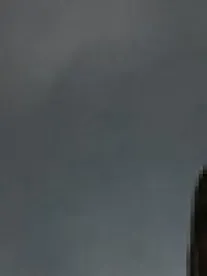Addressing infringement of method claims and various other issues, the U.S. Court of Appeals for the Federal Circuit reversed a district court’s ruling that a means-plus-function claim limitation was sufficiently disclosed, reversed-in-part an infringement verdict for method claims and affirmed the district court’s exclusion of the plaintiff’s damages case and the scope of the injunction imposed. ePlus, Inc. v. Lawson Software, Inc., Case Nos. 11-1396; -1456; -1554 (Fed. Cir., Nov. 21, 2012) (Prost, J.).
The district court denied Lawson’s motion for summary judgment of indefiniteness of the “means for processing” term. While Lawson orally noted its indefiniteness arguments at the pre-verdict judgment as a matter of law (JMOL) hearing and incorporated its summary judgment motion into its post-verdict JMOL motion, it did not specifically argue the indefiniteness issue at trial or in either JMOL motion. The Federal Circuit, addressing the issue of whether the defendant, Lawson, waived its indefiniteness argument noted that, since indefiniteness is an issue of law and the district court regarded its summary judgment decision to be the last word on the issue, Lawson’s actions were sufficient to avoid waiver.
The Federal Circuit then found the means-plus-function term to be indefinite due to an “absence of any disclosure at all” of corresponding structure. The disclosure identified by ePlus was, in the Court’s opinion, merely a “black box” that identified the function but not how it was carried out. The Court also rejected ePlus’ argument that the prior art would inform one of ordinary skill to implement the “means for processing,” reiterating the rule that the disclosure must encompass the required structure, not merely allow one of ordinary skill in the art to find a way to implement the invention.
Turning to infringement, the Federal Circuit first noted that there was no dispute that Lawson’s system is capable of infringing each of the method claims. While the Court upheld infringement of one of the method claims, the Court reversed the infringement verdict for the remaining method claims for lack of evidence showing performance of the “converting data” step. While Lawson’s system had the capability to carry out that step, the capability was an optional feature that had to be loaded by the customer. ePlus did not show that any customers had actually done so, and, thus, the Federal Circuit held that there could be no showing of infringement.
Finally, the Federal Circuit affirmed the district court’s decision to exclude ePlus’ expert testimony on damages, finding ample justification because the expert ignored three small settlement agreements in favor of two larger agreements considered unreliable. However, the Federal Circuit denied Lawson’s argument that the injunction should not bar servicing current customers for whom the sales did not lead to any monetary damages. While the Federal Circuit had allowed parties to continue servicing customers when the original sale was free of liability, for instance by failure to mark under § 287 or by laches, the Court held that the discovery rules barring testimony on damages did not similarly make those sales free from liability.




 />i
/>i

